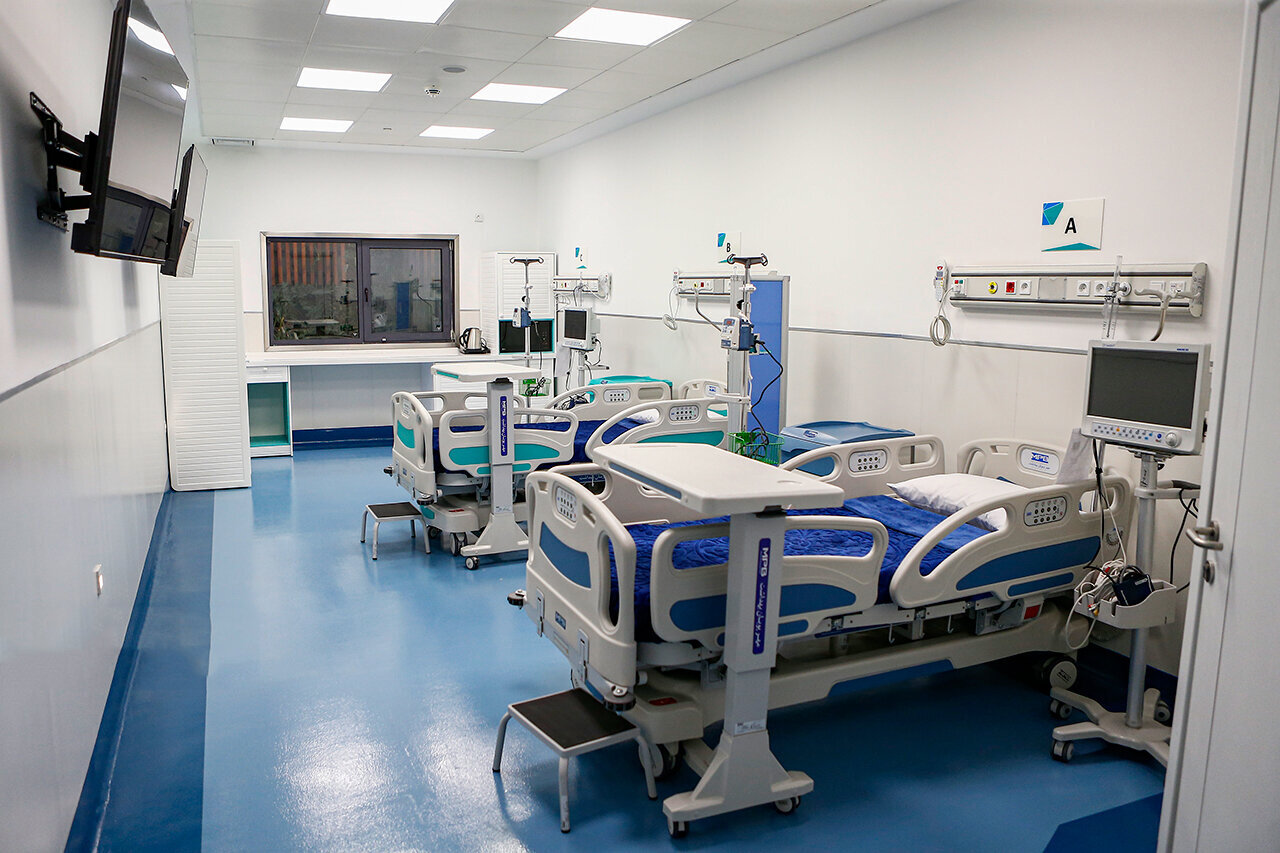Advanced cancer treatment center inaugurated

TEHRAN – A cancer treatment center, which is said to be the most advanced of its kind in the region, was officially inaugurated by President Ebrahim Raisi on Thursday.
Some 12 trillion rials (about $25 million) has been spent on building the center which is specialized for diagnosing and treating stage 3 cancers.
Stage 3 cancer is considered advanced. In this stage, the tumor may have grown to a specific size, cancer may consist of multiple tumors, and/or cancer may have spread to adjacent lymph nodes, organs, or tissue.
In some cases, stage 3 cancers may be considered metastatic cancers, meaning they may have spread beyond their organ of origin.
Many stage 3 cancers have multiple subcategories, usually designated as stages 3A, 3B, and 3C. These subcategories are often determined by the size of the tumors, whether multiple tumors are present, and the degree to which cancer has spread locally.
For the first time in West Asia, some ultra-modern devices such as linear accelerator, CyberKnife, tomotherapy, and CT simulator have been used in this cancer treatment center.
The CyberKnife system is a non-invasive, robotic delivery system for radiation therapy that treats some cancerous and noncancerous tumors and other conditions.
Tomotherapy is a type of therapy in which radiation is aimed at a tumor from many different directions.
The Ministry of Health has launched a plan aimed at preventing the three most common cancers among women, namely breast, colorectal, and cervical cancers, Ali Qanbari-Motlaq, a health ministry official, said in February.
These cancers are the most preventable cancers and at the same time they account for 40 percent of cancers among women and 25 percent of cancers both among men and women, ISNA quoted Qanbari-Motlaq as saying.
The pilot phase of the plan was carried out in 2016 and 2017, he said, adding that in 2018, the development plan of the first phase started.
He pointed out that almost 150,000 people in the country are diagnosed with cancer every year.
Countries are divided into five categories for cancer incidence, and Iran is at the average level in this regard, he noted.
With the support of the World Health Organization, the national cancer control program has been developed, which sets out the Ministry of Health’s roadmap up to the Iranian calendar year 1404 (March 2025-March 2026).
The purpose of the program is to reduce cancer prevalence and mortality while improving the quality of patients’ lives, which can serve as a model for other countries, especially in the Eastern Mediterranean region.
The program includes two important documents, namely, “development of national cancer care network” and “development of cancer human resources”, which resulted in the establishment of the early diagnostic centers.
In November 2022, the first phase of a national project aiming to take advantage of gene therapy for the treatment of children with cancer, known as "CAR T-cell therapy", came on stream.
Chimeric antigen receptor (CAR) T-cell therapy is a way to get immune cells called T cells (a type of white blood cell) to fight cancer by changing them in the lab so they can find and destroy cancer cells.
CAR T-cell therapy has been successful on a five-year-old boy suffering from chemotherapy-resistant leukemia.
The project took nearly seven years to be implemented, Amir Ali Hamidiyeh, head of the gene, cell, and tissue research institute of Tehran University of Medical Sciences said.
After passing cell studies and preclinical studies on animals and obtaining a license and code of ethics from Tehran University of Medical Sciences, a gene therapy product was used for a patient for the first time in the country, he added.
The method is currently in the clinical trial stage and was used on a child with leukemia who was resistant to all treatment methods, he highlighted.
In July 2021, Iran inaugurated an advanced ion therapy center for the first time in West Asia, with the aim of providing definitive treatment for all types of cancer.
Ion therapy is a unique and innovative form of radiation therapy in the world for the treatment of cancer, as the radiation can be focused exactly on the area of the tumor, ensuring that radiation-sensitive organs are best protected.
Ali Akbar Salehi, head of the Atomic Energy Organization, said some 200 million Euros have been allocated to equip the center.
The center is unique in West Asia and is the seventh hospital in the world to be built with advanced equipment, he added.
MG
Leave a Comment